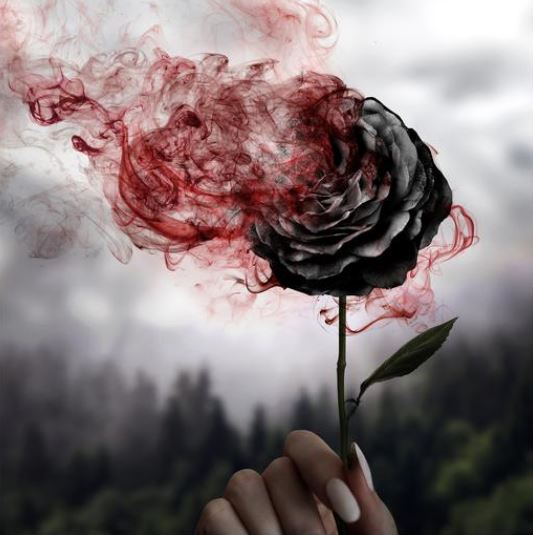
This might inspire you too: From Breakdowns to Breakthroughs: 6 Ways to Embrace the Messy, Raw Journey to Emotional Healing.
The most painful realization didn’t hit me until months after my partner had left.
The world outside my window was vibrant and alive, but inside only silence where the sounds of laughter and promise once lived. Sitting on the cold wooden floor with only empty shelves and boxes of memories for company, sorrow washed over me as I accepted for the first time that the only constant in my epic list of failed relationships was me.
As an Adult Child of an Alcoholic (ACA), I’d spent my life unknowingly repeating the same dysfunctional patterns, chasing the unquenchable need for love and acceptance that eluded me as a child. I consistently chose partners who were alcoholics or children of alcoholics, and without any healing or recovery, my relationships all arrived at the same painful, inevitable end.
There’s something wrong with you, say the whispers from the dark. I quiet them with numbing and denial and cover my brokenness with a version of myself I can stand, one that will find the love I so desperately need.
This time it’s different, I say as each new love blossoms—full of hope for the love that will make me whole. And each time, I tell myself I’ve found it as I share my excitement with those close to me—ignoring their disapproving looks of judgment and concern.
He’s doing it again, they say. Of course I am—because while the names of my partners change, I am the same. All I’ve learned from my failed relationships is how to move on without taking any responsibility for my part in what went wrong. With plenty of blame heaped on my partner, I pick up the pieces of my life and begin again.
Being honest about my flaws wasn’t something I was able or willing to do as someone who grew up in an alcoholic home. I never learned healthy self-worth or felt good enough, and carried my poor self-esteem and fear of abandonment into adulthood.
As an ACA who hadn’t faced my issues, authenticity was not an option:
I’m David, nice to meet you. I come from a dysfunctional alcoholic home. I have little self-worth and a lot of insecurities. I’m pretty dark inside, unlovable and unworthy of belonging. I’m full of shame, reactive, and have no idea what a healthy relationship looks like. Effective communication will be difficult, and intimacy is out of the question. Would you like to have dinner sometime?
Instead of authenticity, they got a highlight reel—with my shame hidden safely beneath layers of silence and secrecy. Covering my insecurities with codependency, I reinvented myself as a knight in shining armor. Burying my darkness deeply, I hoped the real me would never be found.
Wounded male willing to work for love and affection seeks wounded female. I’ll happily rescue you and take care of you. I’ll give up my passions for yours, and make the relationship the focus of my identity and my life. I’ll accept any form of treatment, good or bad, without protest. I’ll trade all of my boundaries for all of your love and affection. All I ask in return is that you never ask to see the real me, and that you never leave me. How does that sound?
As ACAs we often choose other wounded dysfunctional people for partners. We can easily relate to them, bonding through the language of trauma and shame. We’re often attracted to addicted, abusive people because they resemble our addictive, abusive parents. The drama and inconsistency of these relationships feel normal.
We’re comfortable with what feels familiar, and this dynamic is why Adult Children of Alcoholics often choose other ACAs or alcoholics as partners.
Bonding on the level of our wounds is intense, as bottled-up emotions—light and dark—surge to the surface. We feel alive, and it’s addictive. Without ever learning to express the depth of our feelings with words, we reveal them in other ways:
Tangled in sweat-soaked sheets, your white-hot fingertips carve initials into my heart. Fiery candles dance in the darkness, unable to match the scorching heat of this moment. I breathe in your loneliness and exhale my love. Years of pain and longing release at once, wrapped in an explosion of passion, as feelings of connection overwhelm me. I wonder for a second if I’ve been truly seen. In this brief euphoric moment, my pain is gone and I feel whole.
We’re high on emotions and hormones, and we often mistake this connection of sex for love—for many of us it’s the closest we’ll get to intimacy. But it’s not an intimacy of healthy, vulnerable love, but one of shared pain and dysfunction.
The intensity isn’t sustainable. As the fire fades away, euphoria and wholeness are replaced by insecurity and doubt. We become hypervigilant and anxious—scanning for signs of the abandonment we’re afraid is inevitable.
I feel a distance between us…a disconnection. I can’t sit still, can’t calm myself. I’m worried it’s happening again, and I’m afraid. I’m not sure I can trust you or this relationship. Was it ever real? I’ll match your distance with my own—because it’s the only way I know how to protect myself. Maybe you’re not who I thought you were, and just maybe I’ll never get over that.
Many of our relationships won’t survive—it can be agonizing, leaving us wondering why we can’t find happiness like other people. Until we learn to break the cycle, the fear and self-doubt we learned as children will continue to sabotage our choices and adult relationships.
But there’s hope—the way to heal our relationships is to begin to heal ourselves.
We need to accept who we really are and what it means to be an Adult Child of an Alcoholic. There are many resources available to help us—12-Step programs, therapy, and books are some of the things many of us find helpful.
No adult relationship can heal our childhood wounds. But if we’re brave enough to face our issues, we can stop looking to partners to fill our emptiness and meet our needs—we’ll learn to do that ourselves. And in the process, we’ll bring our own identities—individual and beautiful—to our relationships instead of letting them define who we are.
We’ve suffered long enough. With courage, healing, and an open heart we can break the cycle of dysfunction and have the healthy, fulfilling relationships we’ve always dreamed of and deserved.
Additional Resources:
Adult Children of Alcoholics®/ Dysfunctional Families
~







Read 85 comments and reply